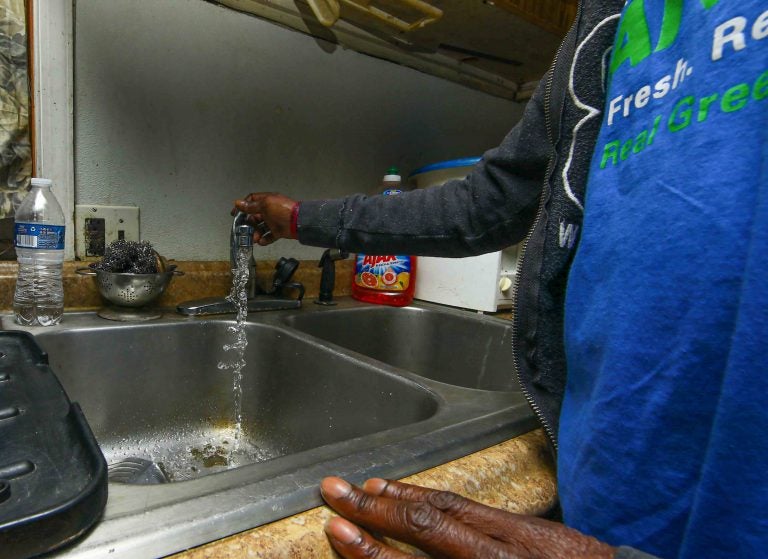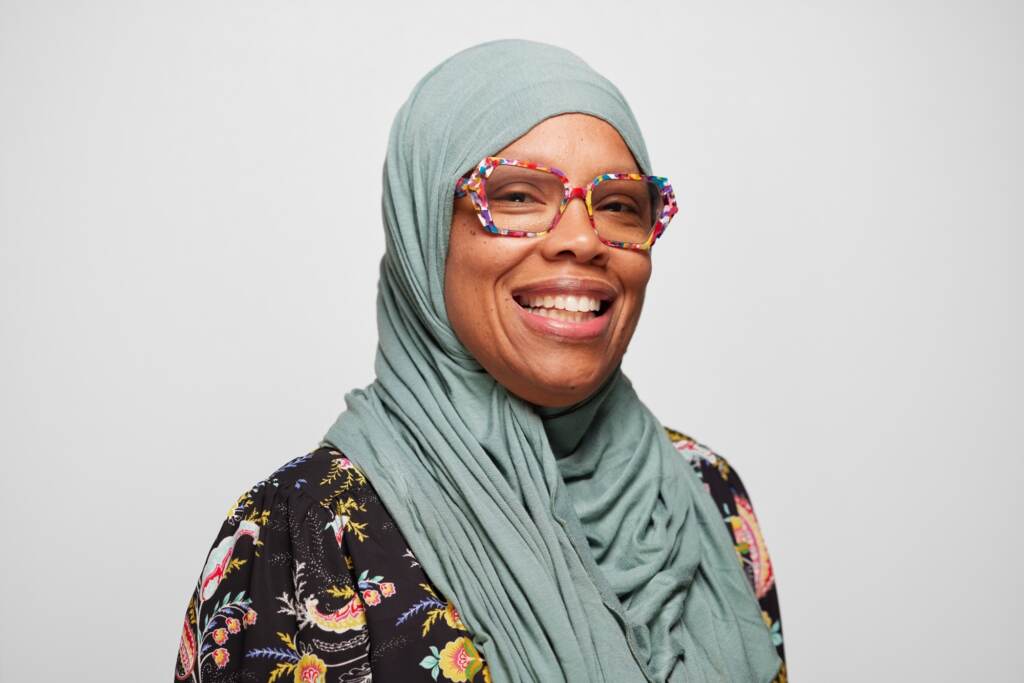Delaware hires its first environmental justice coordinator
DNREC wants to reach people of color and low-income communities that face disproportionate exposure to polluted water and air.

Angialeen Mullen runs tap water to demonstrate the horrible smell coming from the faucet Tuesday, Oct. 08, 2019, in Ellendale, Del. (Saquan Stimpson for WHYY)
Urban geographer Katera Moore has taken on the role of Delaware’s first environmental justice coordinator, the state’s Department of Natural Resources and Environmental Control announced Thursday.
DNREC Secretary Shawn Garvin said the department wants to reach people of color and low-income communities, which have disproportionately faced adverse human health and environmental impacts.
“We talk a lot about environmental justice and making sure people have a seat at the table, but I’ve learned throughout my career that there’s a lot of people who don’t even know there’s a table for them to have a seat at,” he said.

Moore is an educator who holds a doctorate in Earth and Environmental Sciences, with a specialization in geography, from the Graduate Center of the City University of New York. Her research areas include how socio-political structures contribute to disparities that impact everyday life.
Moore previously served as an ombudsman for the DNREC Division of Waste and Hazardous Substances, and was the interim associate director of the Einstein Health Network’s “A Better Start” program.
The environmental justice effort includes a website to help DNREC get information to communities, and create more opportunities for people to provide input. The department also has partnered with Delaware State University to evaluate ways to improve its communication with people of color and low-income communities.
“So this is really trying to evaluate the department, and work with communities so we can bridge that gap, so we can make sure we’re getting into the communities, and not just relying on folks who are speaking on behalf of the communities,” Garvin said.
In addition to improving how DNREC engages with the community, Garvin said the agency also wants to make open space and water equally accessible to everyone.

Get daily updates from WHYY News!
WHYY is your source for fact-based, in-depth journalism and information. As a nonprofit organization, we rely on financial support from readers like you. Please give today.






